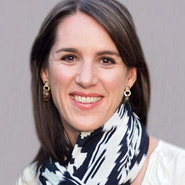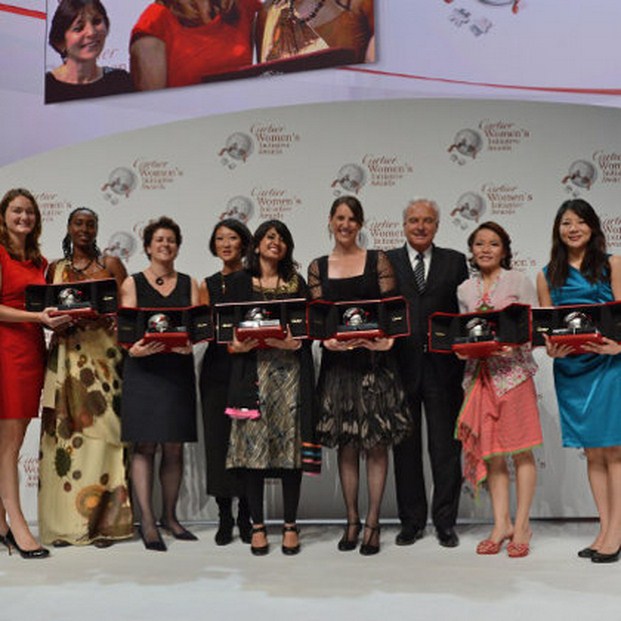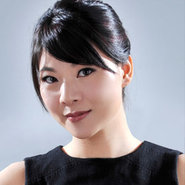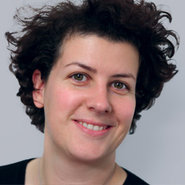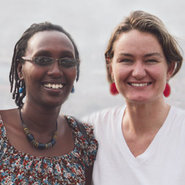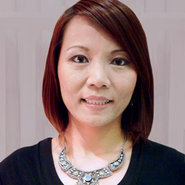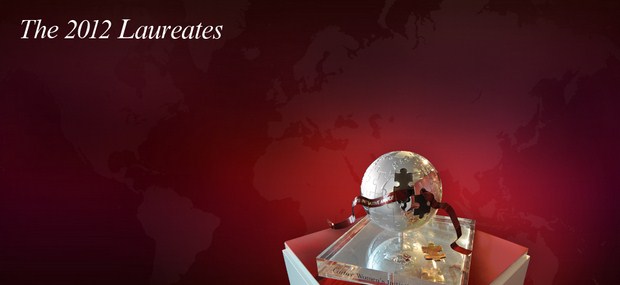 ARE…………………………….. amazing women of the World, for UFFP they are all winners, the finalists included and this is a big Bravo from us to them all, they are the future of womanity ETHICAL PASSIONNATE AND RESILIENT TRUE UNITED FASHION FOR PEACE WOMEN. We have travelled thanks to them and they are all amazing. We had the chance to meet them, and interviewed some of them including the non laureates! so stay tuned for our future reports.
ARE…………………………….. amazing women of the World, for UFFP they are all winners, the finalists included and this is a big Bravo from us to them all, they are the future of womanity ETHICAL PASSIONNATE AND RESILIENT TRUE UNITED FASHION FOR PEACE WOMEN. We have travelled thanks to them and they are all amazing. We had the chance to meet them, and interviewed some of them including the non laureates! so stay tuned for our future reports.
Here is meanwhile the official release of the winners of this last edition and thanks to CARTIER AND THE WOMEN S FORUM who constantly support us women Entrepreneurs, but also women journalists in ethical and social entrepreneurship !
Gabriela Flores
After moving abroad with her family at the age of 10, Gabriela Flores returned to work in Bolivia in 2000. ‘I was shocked and saddened to see the poverty and inequality in my country, I wanted to do something to help.’ Bolivia is one of the poorest nations in Latin America, dependent on foreign aid. Gabriela volunteered for charities in her spare time, but soon saw this would never be enough. In 2005, she took sabbatical leave from her job as general manager of an international shipping company to come up with a plan. ‘Obviously they thought I was crazy! But I knew the answer lay in business, not charity.’ After a year studying for a business certificate and two years’ practical experience – which allowed her to understand the US market – she returned home once again, ready to set up Kirah Design, a business to sustain artisanal jobs by selling quality stylish crafts and designs.
Learning the hard way
The first years weren’t easy. ‘I learned the hard way – on my own!’ Gabriela invested all her savings into the business and focused on her goal. ‘I wanted to break away from a paternalistic approach. Many NGOs come to Bolivia and do a great job, but leave after a few years with no further plan. Artisans might have fine machinery and good training, but if they’re not selling their products they don’t make a living. It’s as simple as that!’
From the outset, Gabriela sought only the best quality to appeal to a high-end market. She set about finding the top artisans working at the bottom of the pyramid. ‘Kirah’s model is not about commercialising artisans’ products: we make new items with them from scratch, with creative designs that appeal to our culture and clients. It’s a market-driven approach.’ Gabriela is adamant on this point. ‘We don’t sell poverty, we sell a skilfully designed, high-quality product at a competitive price. And with a beautiful story behind it.’
Contemporary designs, traditional craftsmanship
Gabriela works with designers in New York, one of whom inspired the next idea: with Bolivia’s rich forest cover there would be a wealth of discarded wood. ‘He saw it as goldmine! Our wooden products are exclusively crafted from it.’ Indeed, Kirah has a policy of using only recycled or discarded materials for its pieces, from certified forests and sources. Its product lines cover household accessories, gifts and decorations, from beautiful wooden vases and bowls to glassware and furnishings. Other materials include textile from natural fibres and lead-free pewter, which is crafted into nests of serving dishes inspired by the traditional canoes on Titicaca lake – considered by the Andeans to be the birthplace of the Incas…
Key to Kirah’s sustainable approach is its exclusive Master Workshop concept, an umbrella for the entire production process and the place where all products go to be finished and controlled for quality. ‘It’s like a mothership,’ Gabriela explains. ‘It’s where we create the prototypes, order the material – to ensure we can trace the quality and ethical credentials – finish the products and train the artisans. Not in craftsmanship, they know that! But in aspects they are less familiar with, such as consistency, reproducing the design and producing to order and deadline.’ By rationalising the whole process, artisans have less outlay, more revenue and more time to craft quality products.
Global reach for Bolivia’s fair trade
Kirah’s products are sold at its shop in Santa Cruz and two outlets in La Paz. Turnover in 2011 reached US$180,000, with 6,000 pieces sold. ‘Now we need to scale up and break into Europe,’ says Gabriela, disappointed to have found few initiatives in Bolivia, be they government or private, looking to create alliances and promote the country’s talents. But she has partnered with social entrepreneurs working with low-income artisanal communities, who speak local dialects and serve as an interface. To date, the company has trained 700 artisans. ‘Our network is growing because we treat the artisans well, we don’t push them to reduce costs or be paid less – they’re at the bottom of the pyramid: the idea is to lift them up!’
Gabriela’s idea originally came from her managerial job at the shipping firm. ‘I was always travelling for business and looking for gifts to take to our clients, a beautiful Bolivian product we can be proud of.’ This is one reason why Kirah is targeting the Latin American corporate market – and perhaps to show Gabriela’s former boss how far she’s come. ‘When I left he asked if I was trying to be Mother Theresa! I told him I just want to make an impact and give people sustainable jobs.’
THE LAUREATES OF THE CARTIER WOMEN INITIATIVE AWARD
Ting Shih
When Ting Shih was an MBA student at the Massachusetts Institute of Technology, she was given the challenge of creating a healthcare business that would serve a billion people in the developing world. ‘The key word is people: before you even tackle the issues of the healthcare market, you need to address people’s access to it,’ she explains. ‘In developing countries they have scarce access to healthcare, but they do have mobile phones, and the idea spread from there, and all the way to the developed world too.’
Specialist care a click away
The basic idea is simple: use mobile technology to give underserved areas access to medical diagnosis via photos, videos and texts.
While smartphone penetration is at an early stage in much of the developing world, mobile penetration is high: in Africa, for example, it is at 72% and rising, according to a GSM Association report. ‘SMS and standard mobile technology cannot capture all multimedia data,’ says Ting. ‘For telemedicine and diagnosis to be most effective, you need a decent image quality and effective transmission.’ Rather than setting up costly cameras and broadband cables, the answer is to equip medical centres and workers with a smartphone that can transmit the protocols and data required for diagnosis by experts hundreds or thousands of miles away.
Here’s where ClickMedix has come up with another simple yet highly effective idea: ‘we’ve built a patentpending system to send data securely and persistently, it won’t stop even when the network is patchy,’ says Ting. ‘It might take hours from deep in Uganda, but it will get there.’ Roaming business executives take note! ‘I even use our system here in the US when the mobile network is overloaded,’ confides Ting, who is considering licensing it to other applications. ‘But first things first: I want to start by solving the healthcare problem!’
Sharing the best ideas
That may seem like a high aspiration, but it is Ting’s driving goal: it’s the reason she left her job at a large pharmaceutical firm to study at MIT and then moved from the first company she co-founded with a similar idea to build her own: ‘Our original company built a custom solution for each client: I wanted a full healthcare platform that could be easily customised. I want to help a billion people with a robust, secure, scaleable platform that is easy to use.’ The benefits are obvious: in one click, specialists receive packaged diagnosis reports that save time spent gathering information during a consultation; patients get the kind of specialist diagnosis they could never have accessed. ‘We started with diseases that are low risk but high impact, such as skin diseases, where treatment lacks dangerous complications.’
Specialists’ knowledge in turn reaches healthcare workers on the ground, who learn from it and increase their involvement in the whole process. The opposite can equally apply. ‘Developing countries find ingenious solutions,’ says Ting. In Botswana, for example, Ting’s initial team used a cervical-cancer screening method invented in Zimbabwe involving vinegar, a flashlight and mobile phone! ‘The vinegar basically highlights the pre-cancerous lesions and allows midwives to determine if they can be safely removed. It’s simple and cheap, it can be used in so many developing countries, and that’s part of the ClickMedix goal: to replicate good ideas in all applicable markets.’
Caring for people
ClickMedix works on all mobile platforms and has four product lines: Click-Specialist for consultations; Click-Health for chronic-disease management and access to records, advice and information; Click-Training to consult professors and anonymous case studies; and Click-Data for data collection and analysis. A project in the pipeline is located in New York, with a trial group of 400 women on a microfinancing programme. ClickMedix is proposing to help them preventively assess health risks, manage weight loss and follow a healthy lifestyle. ‘It’s about replicating the notion of accountability, looking after your health to avoid costly emergency visits,’ says Ting. With North America’s healthcare in a delicate state and moving towards enhanced capitation models – which reimburse a fixed fee per patient regardless of the amount of care dispensed – there should be even greater incentive to promote preventive medicine and cost-effective ways to keep people healthy.
ClickMedix already serves healthcare providers in the US, the Philippines, Taiwan, Guatemala, Uganda and Peru, and Ting seems set to achieve her dream. ‘I was content in my previous corporate job, but there was a problem. I was improving healthcare technology when I wanted to help people with their health!’ A billion of them at that.
Cécile Réal
There’s a chronic disease that concerns millions of people but receives relatively little attention and funding for research. It affects only women and causes great pain and frustration, for there is currently no known cure. Proper diagnosis involves a surgical intervention, which most patients and doctors seek to avoid, delaying diagnosis for years. Treatment is hormonal or surgical, with a 30 to 40% chance the disease will return. It remains a mystery to the medical profession, yet an agonising reality for women around the world. Its name is endometriosis.
Pain is not ‘normal’
‘Endometriosis occurs when small pieces of the endometrium, the lining of the womb, migrate to other parts of the body, where they can no longer be expelled as they would during menstruation,’ explains Cécile Real, 39, a biomedical engineer and the co-founder of Endodiag, a company created to tackle diagnosis of the disease. ‘Nobody knows why it occurs. What we do know is that these cells continue to proliferate and thicken as they would in the womb, causing pain and potential complications, such as infertility. Most commonly, the endometriosis moves to other parts of the pelvis, where it can damage the ovaries or the fallopian tubes. It is also found in the bowel, bladder and colon and in rare cases moves into the lung, causing patients to cough up blood. The most frequent symptoms – such as painful periods, pelvic soreness and bloating – are frequently put down as being a ‘normal’ part of a woman’s life. On average, diagnosis takes nine years.
Improve diagnosis with dedicated tools
Endodiag’s mission is to develop and market three solutions that will help patients receive faster diagnosis and better treatment. Their first product, EndoGram, is a biopsy tool specifically designed to increase the performance of surgical diagnosis by taking samples of tissue, peritoneal fluid and blood, which are then analysed in the Endodiag laboratory. ‘Our research found that a significant number of biopsies are ineffective due to the tools used, notably a clamp and scissors, which cannot always access the lesion effectively. We have developed an innovative punch that enables precise targeting of lesions with ample depth and dimension.’
With the patient’s consent, the samples taken go into the EndoBioBank, a database that includes living cell lines of endometriosis, a very new approach. ‘Cell lines are the memory of the disease. They are hard to find, but we have managed to isolate them in the lesions we have biopsied: we keep them living so that they can serve as a comparison with other samples to improve treatment.’ EndoGram comes with analysis tools that provide thorough knowledge of the lesions, notably the aggressiveness of the endometriosis and its likely progression, using markers to analyse the presence or absence of genetic anomalies and proteins, as well as cell culture. ‘This information can be crucial in therapeutic management, in particular in fertility protocols, for it may be better to remove aggressive endometriosis rather than waste expensive fertility drugs for little chance of success.’
Develop a non-invasive solution
The second product, EndoDiag, is still in development: when completed, the company’s research aims to enable initial diagnosis of endometriosis through a simple blood test, by locating a marker protein of the disease – the ‘label’ of the cell. ‘A non-invasive diagnosis would be a massive progress,’ says Cécile, ‘bringing treatment forward by years to reduce patient’s suffering.’ Lastly, EndoTesting, a B-to-B product, tests the effectiveness of pharmaceutical products on the samples in the EndoBioBank, to assess the impact of the drugs on the progression of the disease. ‘We know that some contraceptive pills have a potential negative impact on the disease, since they can foster its growth. More knowledge of this kind would avoid undue aggravation.’
With a core team comprising an obstetrician gynaecologist and a biologist who have been working on endometriosis for 20 years, alongside a marketing professional and Cécile herself, a seasoned medical CEO who is devoted to the cause of endometriosis, Endodiag is differentiating itself from purely academic teams. In March 2012, it closed a funding round of US$945,000. After further testing to add to the 50 existing clinical trials, the commercial launch of its products is planned for next year.
Endometriosis may be neglected, but studies have found that each affected woman loses an average 10.8 hours of productive work weekly, and that annual costs of the disease in the US reached US$22 billion in 2002. Coupled with the misery and severe pain that sufferers endure, EndoDiag’s solutions to further diagnosis and knowledge of the disease will be appreciated by the estimated 176 million women affected across the globe.
Julienne Ingabire & Elizabeth Scharpf
Elizabeth Scharpf, an American management consultant in pharmaceuticals and biotech turned entrepreneur, and Julienne Ingabire, a Rwandese businesswoman, have joined forces to co-found a business that tackles one of today’s enduring taboos: menstruation. ‘In developing countries like Rwanda, the lack of affordable sanitary pads puts girls at a distinct gender disadvantage; when they can’t afford pads they stay at home during their period to avoid embarrassment, missing days of school every month,’ says Elizabeth, CEO of Sustainable Health Enterprises, or SHE for short, whose goal is to drive economic and social change through sustainable enterprise in emerging markets. ‘Likewise, low-income women in rural areas miss work for the same reasons.’
Low cost, real benefit
Over the ages, women have come up with all manner of materials to deal with their period, from grass and rags to rabbit skins or knitted wool! In the late 19th century, the invention of the sanitary pad in the late set a process in motion that would change their lives and give them increasing freedom. ‘International brands come with high import and manufacturing costs that make them too expensive for all but a happy few,’ says Elizabeth. With an average annual wage of US$496 in Rwanda, such pads would cost the equivalent of one day’s wages. ‘Even locally made pads are beyond many low-income families’ reach.’ To tackle this problem, Elizabeth laid the groundwork for a simple idea: low-cost pads made using local materials and sold by local entrepreneurs. After all, cheaper cars are made for the developing world, so why not cheaper sanitary pads?
A new supply chain for a new material
The desire to launch this sustainable business in Rwanda is how Elizabeth and Julienne met, through the Rwanda Association of University Women network. ‘I was looking for a great partner to build a team on the ground. Julienne is a perfect fit!’ A project manager who grew up in exile from Rwanda, Julienne returned in 2003 to manage the leading chain of coffee shops. Now Julienne heads SHE in Rwanda as COO and oversees operations and campaigns. Developed with the Kigali Institute of Science and Technology and key US partners, the pilot pads – aptly named the ‘Launch Pads’ – are made out of materials sourced in Rwanda, notably banana fibre, due to its absorbent properties. ‘It’s been quite an achievement,’ says Julienne. ‘Nobody seems to use banana fibre here, so we have to develop the first supply chain. Further partnerships will be consolidated with the Rwanda Workforce Development Authority to house the machinery that will allow the business to scale up.
Lobby women in parliament
Response to initial tests with women and girls is very positive and the first pilot for industrial-scale production will start later this year. Once development is complete, SHE expects its pads to be 35% cheaper than locally produced products and 70% less than the international brands – in its first pilot phase, the company has already shaved 15% off distribution costs by cutting out all the middlemen. To market its pads, SHE will stimulate local enterprise by franchising the business to experienced entrepreneurs. ‘Once the business is established, we will also work with women who want to branch out into enterprise and are passionate about this cause,’ says Julienne.
Passionate is exactly how both women feel about breaking the menstrual taboo, a neglected issue that has profound consequences. ‘It affects a woman’s education and dignity at a key moment in their personal development and throughout their reproductive lives,’ says Elizabeth. To raise awareness, they have partnered with women’s health organisations, launching the first campaigns in 2010. The next plan is to lobby parliament to exonerate sanitary pads from Rwanda’s 18% sales tax. Success could even spark regional emulation: Rwanda has the world’s highest number of elected women representatives – 56% – and is the only country where they form the majority, making it an excellent place to start.
Sanitary pads are the first initiative embraced by SHE, which has a rather interesting take on its role: ‘Once our team is driven out of its job by local entrepreneurs, SHE will have achieved success!’ SHE will then move on to its next mission-based venture. ‘I couldn’t go back to corporate life, I always felt like I was merely gaining experience so I could do what I’m doing now,’ says Elizabeth. So SHE will conti
Iba Masood
Graduates in the United Arab Emirates trying to unlock the door to employment are in luck: Iba Masood has devised a web-based careers portal tailored specifically to their needs. What makes it special? ‘We exclusively post internships and vacancies for students and fresh graduates with zero to two years of experience,’ says Iba, 22, a very recent graduate herself. ‘It saves wasting time applying for “graduate” jobs that actually want people with four or five years of experience.’
Recruitment 2.0
Any ideas that this might be your run-of-the-mill corporate career website are way off the mark. The style is fun and funky, with bright colours and a relaxed atmosphere that perfectly suits the Facebook generation. For the others, Gradberry’s on the case: ‘we have an active drive to encourage employers to use our service; 65% of those who post an internship on Gradberry have never posted one anywhere else.’ To help career-seekers with their CV and general tips, Gradberry runs a lively blog called the Fruit Bowl, where professionals can share advice on the industries they work in, ranging across the board, from IT to graphic design and fashion to finance. The blog is free to use and all posts are instantly uploaded to Gradberry’s Facebook and Twitter sites. Job postings are featured on the Facebook site as well, thanks to a special application the company has licensed from the US, since, in Iba’s opinion, ‘social networks are the future for recruitment.’
Five fruit a day
Iba developed her idea when she hit the job market herself. ‘There’s virtually no information on the Internet for graduates in the Gulf region,’ which encompasses the UAE, Kuwait and Saudi Arabia. ‘We have to visit sites in the UK or the US, which aren’t always relevant to our different needs and skills.’ The Fruit Bowl even has a section for aspiring entrepreneurs, called the Startup Shizzle – and if you don’t know what that means you will have got the picture: Gradberry’s target is under the age of 25! The whole site breathes life and upends visions of traditional recruitment. Make no mistake, though, Gradberry has been attracting big players, from IBM to Philips or Ikoo, the extensive advertising network in the Middle East. ‘Our employer targets are SMEs, however,’ says Iba. ‘They form over 90% of businesses here but lack the resources to individually approach universities to hire graduates – the old-fashioned way!’
Current revenue streams come from advertising and fees that employers pay to use the service. Having launched in December 2011, Gradberry posted 145 internship and job opportunities in the first seven months of operation, has notched up two million visits and is looking to raise a round of funding to develop a deeper search engine to filter the best employees. Registered users currently top 8,000, with 100 new log-ins per week and 15 to 20 employers joining each month. As of June 2012, 65 graduates have found jobs through the platform, which posted its first jobs from outside the UAE, in Saudi Arabia and Egypt, this summer. As for internships, they were previously few and far between in the UAE. ‘Employers aren’t familiar with the administrative procedure for internships,’ says Iba, who offers to help them understand the ins and outs of an internship contract.
Opportunity knocks
Iba herself oozes energy, but her path to entrepreneurship has not been without difficulties. Her first entrepreneurial experience came aged nine, when she made jewellery to sell to her friends at school. ‘It was short-lived, however: maybe I was making too much money, since the school shut me down!’ At 11, she rented out her collection of books and gave half the proceeds to a charitable cause. Her parents emigrated to the UAE from Pakistan 55 years ago and Iba was born there, but as a non-UAE citizen she has found certain doors much harder to open and is adamant about gaining exposure for young entrepreneurs in the Middle East, ‘I want to show everyone it can happen, because I think youth unemployment is the most important issue in the Middle East today.’ Indeed, many people attribute the start of the Arab Spring to unemployment among graduates, who knew how to turn the social networks to their advantage. Watch out, world: with Gradberry on the move, good graduates could soon be hard to come by!
nue to develop initiatives that respond to its core goal: sustainable enterprise to facilitate development.
Lianna Gunawan
Like many women, Lianna Gunawan loves shoes. But while most will assuage this passion through shopping, this former retail and marketing professional has taken it one step further and created her own shoe company! Entrepreneurship crept up on her unexpectedly: ‘I always worked in a corporate culture,’ she explains, ‘but when I took time out to become a mother, I was scouting the Internet for shoes and decided I’d get an artisan to make me some.’ She had so many compliments and requests for similar shoes, she started to get them made for friends and built up the idea from there: ‘in my living room!’
Having bootstrapped La Spina Collections in 2010, Lianna soon wanted to take her company further. Government initiatives to promote Indonesian crafts and heritage struck a chord with her. ‘I decided that would be the core value of my business: hand-made Indonesian shoes, using uniquely Indonesian materials.’ She is intent on debunking home-grown notions that ‘Made in Indonesia’ means cheap and cheerful. For this young entrepreneur, La Spina is about much more than a pair of shoes: ‘you’re wearing a piece of our culture and heritage as well.’
Indonesian savoir-faire
Fridays are ‘batik day’ in Indonesia, to encourage people to wear the country’s traditional dye-resistant fabric, the making of which is a veritable art form. La Spina has integrated batik into its shoes, using the hand-stamped variety, because it is still 100% handmade. ‘It’s far more challenging to use than leather or synthetic uppers, you have to structure the textile and develop linings to shape it,’ says Lianna. Other Indonesian specificities include rattan heels or woodcrafts from Jakarta, which are more commonly seen in furniture or statues. ‘Furniture wood is too heavy, so we have the sculptor carve mahoni wood, an indigenous species, into soles and heels. And we don’t cut down trees for it either! We buy leftover wood scraps from the Ministry of Forestry.’
Lianna started out creating the designs herself in collaboration with a pattern-maker, but is now fostering partnerships with universities to work with young designers and showcase Indonesian flair. She is stringent about comfort, even in the highest heels. ‘Feet are precious, so we line our inner soles with the kind of padding you would find in sneakers or trainers!’ La Spina footwear is sold in four major retail outlets in Jakarta, from the first concept store for Indonesian design to the capital’s branch of the department store Debenhams; the upscale department store Metro; and a stand-alone outlet. Sales in the first quarter 2012 reached US$86,000 and the first exports were shipped to Japan last year. Lianna’s goal is to bring international visibility to her collection to highlight the Indonesian fabrics and savoir-faire of which she is so proud. In this aim, she joined the Femina Women Entrepreneur community in Indonesia, which encouraged her to submit an application for the Awards. ‘I’m so excited to be going to France, the land of high fashion, as a finalist. My next dream would be to see La Spina in a Parisian department store!’
The company is currently at maximum production capacity and preparing to scale up this summer, for Lianna has just achieved one of her prime objectives: La Spina has been contracted to make shoes for the cabin crews of Indonesia’s national airline, Garuda Indonesia. ‘We’re thrilled to showcase Indonesian quality and design with a major ambassador for our country,’ says Lianna. ‘I’ve been scouting for craftspeople for months to be able to respond to the corporate market, and am set to hire two dozen more artisans alongside our 20 current employees.’
Best foot forward
To differentiate itself from the competition and heighten awareness of the quality of its product, La Spina has made its after sales service a competitive advantage. ‘We offer to exchange our shoes if they don’t fit well, an extremely rare service in Indonesia, alongside a full guarantee: we repair any potential manufacturing defect and lend a pair of shoes while you wait!’ There are perks of course too. ‘Obviously I wear all the shoes!’ she smiles. ‘I personally test them all for comfort and wearability.’
Don’t let words like ‘traditional’ and ‘artisanal’ lead you astray: La Spina shoe designs have created a pioneering mix of quality handmade traditions and contemporary style that’s sharp and feminine; from wedge sandals to cute ballerina flats, colourful patent brogues or peep-toe platforms and stiletto booties, there’s a style to fit every budding Cinderella out there. As the company slogan says: ‘Fashionably Indonesia.’
 UFFP EDITOR FERIEL BERRAIES GUIGNY IN BLACK AND GOLD WITH THE LAUREATES AND FINALISTS
UFFP EDITOR FERIEL BERRAIES GUIGNY IN BLACK AND GOLD WITH THE LAUREATES AND FINALISTS
The mission of the Cartier Women’s Initiative Awards is threefold
The Cartier Women’s Initiative Awards are an international business plan competition created in 2006 by Cartier, the Women’s Forum, McKinsey & Company and INSEAD business school to identify, support and encourage projects by women entrepreneurs.
- To identify and support initial-phase women entrepreneurs through funding
and coaching - To foster the spirit of enterprise by celebrating role models in entrepreneurship
- To create an international network of women entrepreneurs and encourage
peer networking
The Cartier Women’s Initiative Awards aim to encourage the most vulnerable category of entrepreneurs in their most vulnerable phase: women entrepreneurs starting up. Since their inception in 2006, they have accompanied over 75 promising female business-owners and recognized 20 Laureates.

